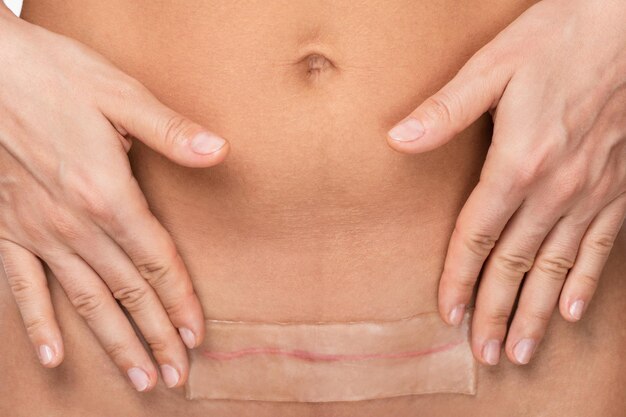Scarring is a natural part of the healing process after cosmetic surgery, but for many women, minimizing the appearance of scars is a priority. Understanding how scars form and how to care for them can make a significant difference in the final result. Here are 15 things South African women should know about scarring after cosmetic surgery and how to minimize it:
- Scarring is a Natural Healing Process
No matter how skilled your surgeon is, scarring is a natural part of recovery after surgery. The body’s way of repairing skin after an incision or injury is to form scar tissue, so it’s important to manage expectations. - Genetics Play a Role
Your genetic makeup can affect how your skin heals and scars. Some people naturally form more visible scars, while others heal with minimal marks. Understanding your personal skin history can help manage expectations. - Follow Post-Operative Care Instructions
Your surgeon will provide specific instructions for post-op care. Follow these guidelines meticulously. Proper wound care is essential to minimizing scar formation, so don’t skip steps like cleaning or moisturizing the area as recommended. - Keep the Incision Clean and Moist
Keeping the surgical site clean is crucial to avoid infections, which can worsen scarring. Also, keeping the area moisturized with ointments or creams recommended by your doctor will promote better healing. - Avoid Sun Exposure
Sun exposure can darken scars and make them more visible. Make sure to cover the healing area or apply sunscreen with a high SPF to protect it from harmful UV rays, especially in South Africa’s sunny climate. - Scar Creams and Silicone Sheets
There are over-the-counter scar creams and silicone sheets that can help reduce the appearance of scars. Silicone sheets, in particular, are known for flattening and fading scars over time. Speak to your surgeon about these options. - Stay Hydrated and Eat a Balanced Diet
Proper hydration and nutrition play an important role in skin healing. A diet rich in vitamins, antioxidants, and proteins can promote faster, healthier healing and minimize scar visibility. - Massage the Scar
Once the incision has closed and healed, gentle massage can help soften the scar tissue and promote better blood flow to the area. Consult your surgeon on when and how to begin massaging the area. - Don’t Rush Physical Activity
After surgery, your body needs time to heal. Engaging in physical activity too soon can strain your incision site, potentially causing the scar to widen or become more pronounced. Follow your surgeon’s guidance on when to resume exercise or strenuous activities. - Use Topical Treatments with Retinoids
Retinoids can help improve skin texture and reduce the appearance of scars. Products containing retinol or prescription-strength retinoids can accelerate cell turnover and promote smoother skin. However, use these only under medical supervision. - Consider Laser Therapy
If your scar is more visible than expected, laser treatments can help reduce its appearance. Laser therapy targets the scar tissue, promoting smoother skin. Consult with a dermatologist or plastic surgeon to see if this option is suitable for you. - Avoid Smoking
Smoking can hinder the healing process by reducing oxygen supply to your skin, which in turn can lead to worse scarring. If you smoke, try to quit before and after surgery to promote better healing and reduce scarring. - Be Aware of Keloid and Hypertrophic Scars
Some people, especially those with darker skin tones, are prone to developing keloid or hypertrophic scars, which are raised, thickened areas of scar tissue. If you’re prone to this, discuss preventive measures with your surgeon before surgery. - Don’t Pick at Scabs
Picking at scabs or healing wounds can delay the healing process and increase the risk of infections and worsened scarring. Let the scab fall off naturally to ensure optimal healing. - Give It Time
Scars improve over time. While scars may appear dark or raised in the first few months after surgery, they usually fade and flatten over a year or longer. Patience is key, so give your body time to heal fully before judging the final result.
By following these steps and working closely with your surgeon, you can significantly reduce the appearance of scarring after cosmetic surgery. Remember that while scars may be a part of the process, they don’t have to define your post-surgery experience. Proper care, patience, and informed choices can lead to smoother, less noticeable scars, allowing you to enjoy the full benefits of your cosmetic procedure.








